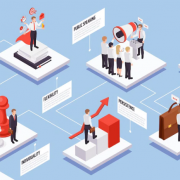Feeling Unmotivated At Work? These 3 Tips Will Help
Are you feeling tired or unmotivated at your workplace? An Instagram post popped up on my smartphone. Yes, I opened the slide hoping to see a magic trick that would help my mental fatigue. The post went on to suggest that I probably was just a burnout and I wasn’t going through mild depression, as per the results of my self-diagnosis.
In as much as I did not get what I was hoping to get on that Instagram post, I discovered that I needed to be mentally strong and find my motivation on a daily basis. However, I also did not dismiss the thought that I might be unmotivated because of a serious burnout and I worked on my schedule and the truth is things drastically changed. In their 2016 paper titled Burnout Syndrome and Demotivation Among Health Care Personnel. Managing Stressful Situations: The Importance of Teamwork J. García-Campayo and his team reiterates that, work-related stress may actually have dire consequences and it’s no surprise that demotivation can be one of them.
Having a fulfilling career in this life where others struggle to find themselves is an absolute privilege. Over the years many have struggled to find fulfilment, contentment and even happiness, especially in their work. If you are one of the content, fulfilled, happy ones, you have a reason to celebrate.
However, if you are struggling to get through the mandatory work hours, if you are feeling grumpy, maybe it’s high time you sit down and take stock of your life. If you still want to be a nurse or that health professional that you are but feel unmotivated, these 3 tips might help you.
- Try and find a working equilibrium between your work and your personal life. Sometimes you are not unmotivated, you are just struggling to find that work-life balance.
- Try and manage your stress levels. Sometimes fixing this one thing, keeping your stress levels low might actually help you in more ways than one.
- Try and create/maintain a healthy working environment. We are all aware of the things that make our working environment toxic. It’s high time you tackle that elephant in the room and find a way to ensure your workplace is not a dreary place you hate going to every day. Chat to colleagues, make friends, don’t talk back, be considerate, help out and try to be at peace with as many coworkers as you can.
In case you want to pick extra shifts from us, contact us via email at info@myshifts.work or call 03300300031. Check out our other blogs on work-related content.




